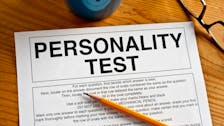The SHL OPQ Assessment (2024 Guide)
All products and services featured are independently selected by WikiJob. When you register or purchase through links on this page, we may earn a commission.
- What Are the SHL Personality Tests and Why Are They Important?
- What Is the OPQ?
- What Does the OPQ Measure?
- The Structure of the OPQ Assessment
empty
empty
empty
- What Does the SHL OPQ Test Measure?
empty
empty
empty
- How the Results of the OPQ Assessment Are Reported
- Can I Trick the SHL OPQ32 Personality Test?
- SHL Personality Test Examples
- How to Prepare for the OPQ Assessment: A Step by Step Guide (2024)
- Frequently Asked Questions
With the number of college graduates rising every year, nearly half of the employers in the US now use occupational personality tests to single out the very best candidates.
One of the most common tests is the SHL Occupational Personality Questionnaire (OPQ). Developed by Saville and Holdsworth Ltd (SHL), the OPQ is also referred to as the SHL personality test or OPQ32.
What Are the SHL Personality Tests and Why Are They Important?
Recruitment is an expensive and time-consuming process. Employers are constantly searching for more efficient ways to identify competent candidates – those who are a good fit for the company’s culture and sympathetic to their commercial goals.
SHL’s aim is to provide employers with scientifically verifiable insights into candidates’ personalities. The SHL tests identify whether candidates possess the characteristics required for the job role. They can also predict future performance at work, and identify any leadership potential.
SHL provides two types of personality test – the OPQ and the SHL Motivation Questionnaire (which predicts future performance at work).
At their core, the SHL personality tests are based on the Big Five Personality Traits:
- Openness
- Conscientiousness
- Extraversion
- Agreeableness
- Neuroticism
The Big Five taxonomy is based on decades of empirical research into personality, and is generally considered to be robust. Furthermore, the SHL tests have been translated into over 30 languages and SHL has the largest database of records in the world, from over 86 million candidates.

What Is the OPQ?
For those curious about OPQ meaning, it stands for Occupational Personality Questionnaire.
The OPQ is one of the most popular assessments used by employers. It is a traits-based test that allows employers to assess candidates’ styles of behavior and predict how their personality might affect their performance at work. It is a self-report test, meaning the results are based on your own self-perception.
While it is not technically possible to fail an OPQ assessment, employers will be looking for certain characteristics for the role in question. You can, therefore, score highly or poorly depending on what the employer requires and whether you possess the corresponding personality traits.
With the OPQ’s prevalence within the market, it is crucial that you prepare yourself in case an employer asks you to take one. The more familiar you are with the shl personality test format and types of questions, the more accurately and thoughtfully you will be able to answer them.
Some companies known to use the OPQ are:
- Goldman Sachs
- Coca-Cola
- IKEA
- Volvo
- Heineken
- The Adecco Group
- Bombardier
- Kimberly-Clark
What Does the OPQ Measure?
The Occupational Personality Questionnaire (OPQ) is a widely used psychometric assessment tool designed to measure an individual's workplace-related personality traits and behavioral preferences.
Developed by SHL (now part of CEB-SHL Talent Measurement Solutions), the OPQ is used by employers and organizations to gain insights into an individual's behavioral style and potential fit within a specific role or organizational culture.
The OPQ measures a range of personality dimensions, including:
- Extraversion: The degree to which a person is outgoing, sociable, and assertive versus introverted and reserved.
- Emotional Stability: The extent to which an individual remains calm and composed under pressure or is prone to experiencing emotional ups and downs.
- Conscientiousness: The level of organization, reliability, and attention to detail a person displays.
- Openness to Experience: The inclination to be curious, creative, and open to new ideas and experiences.
- Agreeableness: The tendency to be cooperative, empathetic, and considerate of others' needs and feelings.
- Tough-mindedness: The degree to which an individual is logical, objective, and resilient in dealing with challenges and criticism.
- Independence: The preference for autonomy, self-reliance, and working with minimal supervision.
- Structure: The inclination towards orderliness, planning, and adhering to rules and procedures.
The OPQ provides employers with valuable information to assess job fit, predict job performance, and identify development opportunities for individuals within their organization.
The Structure of the OPQ Assessment
The opq test is taken online and has three formats:
- OPQ32r
- OPQ32i
- OPQ32n
OPQ32r
You are most likely to take the OPQ32r, the “shorter ipsative” version of the test. It consists of 104 questions and is untimed, typically taking around 25 to 40 minutes to complete. You are presented with blocks of three statements, from which you must choose the one that sounds most like you and the one which sounds the least like you.
For example:
“Please choose one MOST true and one LEAST true statement:"
- I enjoy the companionship of others
- I try out new activities
- I look to the future
(Source: SHL)
OPQ32i
The OPQ32i is similar to the OPQ32r, but each question consists of a block of four statements. They are both shl occupational personality questionnaires.
OPQ32n
OPQ32n is the 'normative version' of the shl personality test. You are presented with 416 statements, which you rank on a scale of 1 to 5 (strongly agree to strongly disagree). It is untimed and takes around 45 to 60 minutes to complete.
Take a SHL OPQ32 Personality Test
What Does the SHL OPQ Test Measure?
The OPQ measures behavioral styles, not ability. There is no “wrong” kind of personality. However, the more closely your behaviors align with the company’s performance expectations, the more likely it is you will be suitable for the role concerned.
The three major styles assessed are:
- Relationships with people
- Thinking style
- Feelings and emotions
Within these categories, you are assessed across 32 dimensions of personality. The opq test is therefore sometimes referred to as OPQ32.
Below are the 32 characteristics as they fall within the categories of shl personality test.
1. Relationships with People
- Sociability – Socially confident, affiliative, outgoing
- Influence – Independent, persuasive, outspoken, controlling
- Empathy – Democratic, caring, modest
2. Thinking Style
- Structure – Conscientious, rule-following, detail-conscious, forward-thinking
- Creating and change – Variety seeking, conventional, innovative, adaptable, conceptual
- Analysis – Evaluative, behavioral, data rational
3. Feelings and Emotions:
- Dynamism – Achieving, vigorous, decisive, competitive
- Emotions – Optimistic, emotionally controlled, relaxed, trusting, worrying, tough-minded
(Source: Actualisecoaching.com)
Together with the framework above, your test answers are compared against SHL’s Universal Competency Framework (UCF).
The UCF was developed through wide-ranging research into workplace behaviors. Many of SHL’s individual personality tests are linked by the common foundation of the UCF.
The UCF describes eight general dimensions of competency (defined by Professor Bartram in 2002 as “sets of behaviors that are instrumental in the delivery of desired results.”)
Within the eight dimensions are 20 key competencies that are outlined below:
- Leading and deciding – Taking action and offering direction; demonstrating leadership
- Supporting and cooperating – Supporting and working with colleagues; demonstrating an understanding of standards and values
- Interacting and presenting – Networking and communication; using powers of persuasion and influence; presenting information
- Analyzing and interpreting – Extrapolation of complex problems; applying expertise and understanding technology; analytical thinking
- Creating and conceptualizing – Research skills; innovation and creativity; systematically conceptualizing and strategizing
- Organizing and executing – Planning and organization skills; meeting customer expectations and providing quality service; adhering to procedures
- Adapting and coping – Successfully responding to change; coping with stressful situations
- Enterprising and performing – Achievement of personal work objectives; being commercially aware and forward-thinking.
(Source: cebglobal.com)
These two frameworks are used in conjunction to produce your OPQ assessment results.
Practice SHL OPQ32 Personality Test with JobTestPrep
How the Results of the OPQ Assessment Are Reported
There is a range of reporting options for the OPQ assessment. Reports are designed to ensure your employer is given the information required to make insightful recruitment decisions.
Below are some examples of opq32 test reporting styles:
- The Managerial and Professional Profile Chart provides an in-depth graphical representation of your results.
- The Manager Report provides a brief written report describing your personality.
- The User Report provides both a graphical and written overview of your personality.
- Social Desirability scale helps employers determine if your responses are genuine.
As you can see, despite the complicated conceptual framework behind the OPQ, the reports are simple to analyze and provide clear, detailed insights into your personality.
All SHL OPQ candidates are entitled to feedback on their results. During a feedback session, you may be given a Candidate Report, which is a brief written overview of your personality.
Can I Trick the SHL OPQ32 Personality Test?
When taking your OPQ assessment, remember to be honest and answer the questions as accurately as possible.
Do not try and trick the test. You may be tempted to try and answer the questions in a way that presents you in the best light possible, but this will likely distort your results.
Hundreds of thousands of candidates take the OPQ every year and SHL occupational personality questionnaire has compiled 24 terabytes of data to compare your results against. This makes the opq32 test one of the most accurate and reliable personality tests on the market.
Within the OPQ model are two scales which analyze how you have answered the questions:
- The consistency scale analyzes whether your answers are reliable.
- The social desirability scale analyzes whether you have tried to skew your answers to present yourself in a more positive light. This will analyze your desirability from the employer's point of view.
If you score poorly on the consistency scale, it indicates that you did not understand the questions, you are indecisive or that you were trying to cheat the test.
Similarly, if you score poorly on the social desirability scale, it may be because you have tried to distort the test by answering the questions too positively. It may also suggest you lack self-awareness or you are driven to please the people around you.
If you somehow succeed at tricking the test, you may end up in a job that you are not suitable for. It’s just not worth it.
SHL Personality Test Examples
There are many opq assessment sample tests available where you can practice. Utilizing these practice test can help you improve your results.
Here are some opq test sample question answers:
Agreeableness:
"I am usually considerate of others' feelings." "I often go out of my way to help others." "I find it easy to get along with people."
Conscientiousness:
"I am known for being organized and methodical in my work." "I always complete tasks on time." "I pay close attention to details."
Extraversion:
"I enjoy socializing and meeting new people." "I am the life of the party at social gatherings." "I prefer working in a team rather than alone."
Openness to Experience:
"I am open to trying new and unconventional things." "I enjoy exploring new ideas and concepts." "I am a creative thinker."
Emotional Stability (Neuroticism):
"I rarely get stressed or anxious in challenging situations." "I am generally calm and composed." "I can easily handle emotional setbacks."
Motivation and Drive:
"I am highly motivated to achieve my goals." "I am willing to put in extra effort to succeed." "I am driven to excel in my work."
Adaptability:
"I can quickly adapt to changes in my work environment." "I am comfortable with uncertainty and unexpected challenges." "I thrive in dynamic and changing situations."
If you need to prepare for a number of different employment tests and want to outsmart the competition, choose a Premium Membership from JobTestPrep.
You will get access to three PrepPacks of your choice, from a database that covers all the major test providers and employers and tailored profession packs.
How to Prepare for the OPQ Assessment: A Step by Step Guide (2024)
Here are some more shl personality test tips to help you prepare to take an OPQ assessment:
Step 1. Be Self-Aware So You Can Present Your Personality Accurately
Take some time before the test to think about yourself in the context of the three personality categories. For example:
- Relationships with people: Are you a born leader or do you prefer to follow?
- Thinking style: Are your strengths in organization? Do you like structure to your day or are you more laid-back?
- Feelings and emotions: Do you often feel anxious? Are you competitive? How do you react when someone has wronged you?
Step 2. Use Your Time Wisely
As the test is untimed, take care to answer the questions thoughtfully. That said, overthinking your answers may lead you to subconsciously present an inaccurate representation of your personality. If in doubt, go with your instinct.
Step 3. Research the Company and the Role
Think about which characteristics the recruiter is looking for and how you fit the criteria. If you understand how your personality corresponds with the characteristics required, this will likely come across in your test result.
Step 4. Imagine Yourself in an Employment Context When Considering Your Answers
The OPQ test questions are designed to identify behaviors at work and your results will be scrutinized by your employer.
Step 5. Take Practice Personality Tests
You can find plenty of free resources online. Try searching for variations of 'OPQ32 practice questions' or 'OPQ assessment sample tests'. Be sure to take a look at the OPQ32 study guide from JobTestPrep.
Step 6. Take Care of Yourself
Before taking the occupational personality questionnaire test, ensure you are well-rested. Eat healthily and drink plenty of water to keep your mind alert.
Prepare for SHL OPQ32 Personality Test
Ultimately, if you are honest with your answers, your natural qualities will shine through. And remember, even if you score 'poorly' on an OPQ assessment, it does not mean you have a bad personality.
It only means you may not be suitable for the job you are applying for. And if the job is not one which would fulfill you and make you happy, then it is probably not a job you want anyway.
Frequently Asked Questions
The SHL OPQ (Occupational Personality Questionnaire) assessment is a way for employers to assess the personality traits and work behaviors of potential employees.
Based on the Big 5 personality traits, like many other personality assessments, the SHL OPQ looks at the following:
- Openness
- Conscientiousness
- Extraversion
- Agreeableness
- Neuroticism
There are three different types of Occupational Personality Questionnaire that you might face in pre-employment screening.
OPQ32r and OPQ32i are ipsative tests, presenting 104 statements in blocks. You will need to choose the statement that is most like you and least like you.
The OPQ32n is the ‘normative’ version and presents 416 statements that you are required to rank on a five-point scale from ‘strongly agree’ to ‘strongly disagree’.
The SHL OPQ is a self-reporting test, which means that the answers you choose are based on the way you think about yourself.
The SHL OPQ is used to create strong teams, identify the best candidates and find future leaders.
The occupational personality testing It is not an ability test, and there are no right or wrong answers. Instead, they assess the way a candidate interacts with others, how they think and solve problems, and how they deal with feelings and emotions.
These include sociability, influence, empathy, structure, creating and change, as well as analysis skills, dynamism, optimism and trusting ability.
The answers that you provide on this assessment are compared against the SHL Universal Competency Framework (UCF) and the needs of the recruitment team for the role.
To get the most out of the SHL OPQ test, you need to answer as honestly as possible.
These questionnaires often feature statements that could all be as relevant as each other, so deciding which one describes you best can make it difficult to choose.
The assessment is untimed, so you can make the most of your answers – although it always makes more sense to answer honestly rather than spending too long choosing the statement that you think matches what the recruiter is looking for.
The OPQ is designed to ensure that you can’t ‘game’ the system – inconsistencies in the way you answer come out in the way the statements are presented.
There are no right or wrong answers in the assessment, so you cannot fail the SHL OPQ. However, if your answers do not show that you have the right personality traits for the role then you will not be selected.
The SHL OPQ (Occupational Personality Questionnaire) is basically the same as the Kenexa Occupational Personal Inventory (OPI) and the Hogan Personality Inventory.
They use the same structure of statements and rankings, are self-assessments, and are based on the same Big-Five personality traits: Openness, Conscientiousness, Extraversion, Agreeableness and Neuroticism.
The SHL OPQ mostly has 104 statements that measure 32 personality traits.
The Kenexa Occupational Personality Inventory has 250 questions based on 25 separate personality traits, to be ranked on a scale from strongly agree to strongly disagree.
The Hogan Personality Inventory is more focused on the ‘bright side’ personality of the candidate, with seven personality traits and six specific work behaviors assessed through 220 statements that you need to choose whether they are true or false, or whether you agree or disagree.
The SHL OPQ Assessment (Occupational Personality Questionnaire) is an untimed assessment, where you will need to assess yourself on the statements provided.
Usually, the test will take about 20 minutes to complete.
As with any pre-employment assessment, one of the best things you can do to ensure you are prepared for the OPQ testing is to get a good night’s rest, eat a healthy meal and ensure that you are hydrated.
As this is a personality test, with no right or wrong answers, practice is not about revision and learning, but more about ensuring that you know what the test will look like, how the statements are presented and how you need to answer.
You will need to be prepared to dig deep in the assessment. This is a self-reporting questionnaire, and to answer honestly you will need to really think about yourself.
You need to answer honestly, but make sure you bear in mind the requirements for the job for which you have applied. In most cases, go with your gut instinct when you are answering.
To get familiar with the structure of the SHL OPQ assessment and the way the statements are presented, practicing tests will help.
One of the best places for revision is the SHL website. The Online Personality Questionnaire is available as a practice test online, as are all the other types of SHL test.
You can learn more about what the SHL test is assessing through articles like this Wikijob one, full of details that you can use to make the most of your preparation.
For thorough preparation, you can get access to both free practice tests as well as paid-for prep packs that include tips and tricks as well as revision with JobTestPrep.
When candidates are faced with pre-employment assessments, it can be tempting to try and ‘crack’ or ‘game’ the assessments for a better result.
With a test that is based around personality traits, this is not a good idea. While it might seem to be the best idea to answer based on what you think the employer and the recruiter want to hear rather than the type of person you are.
The OPQ is designed to ensure that your answers are the same throughout the assessment, and any answers that are out of the ordinary are flagged. Trying to cheat in this way not only risks you getting the job in the first place, but you might not be a good fit, either.
Personality traits are as much about the way the potential employee will fit into the workplace as it is about their suitability for the role itself. What this could mean is that if you ‘crack’ the personality test, you could end up in a job that you aren’t suitable for, or in a workplace culture that you are not comfortable in.
Each role will have different requirements from a candidate in terms of scores, and this is not a ‘right’ or ‘wrong’ assessment so it isn’t something that you will fail, necessarily.
Instead, the answers you give are used to form a report, which is compared to an ideal candidate model for the role and the company culture.
They are also compared against the SHL Universal Competency Framework (UCF) which are used to demonstrate behaviors that demonstrate a candidate can have future success:
- Leading and Deciding
- Supporting and Cooperating
- Interacting and Presenting
- Analysing and Interpreting
- Creating and Conceptualising
- Organising and Executing
- Adapting and Coping
- Enterprising and Performing
The report that is used by the recruitment team is complemented by a separate report that is sent to the candidate.
The SHL OPQ (Operational Personality Questionnaire) is designed to look at 32 different dimensions of personality:
1. Relationships with People
- Sociability – socially confident, outgoing, affiliative
- Influence – controlling, outspoken, independent, persuasive
- Empathy – caring, modest, democratic
2. Thinking Style
- Structure – detail-conscious, rule-following, forward-thinking, conscientious
- Creating and Change – conventional, innovative, adaptable, conceptual, variety seeking
- Analysis – data rational, evaluative, behavioral
3. Feelings and Emotions
- Dynamism – decisive, competitive, vigorous, achieving
- Emotions – relaxed, trusting, emotionally controlled, optimistic, tough-minded, worrying
SHL offers a remote proctoring service for all its assessments, and this includes the OPQ (Operational Personality Questionnaire).
With this additional-cost service, a recruiter can decide whether they want SHL to monitor test takers while they complete the assessment through a variety of methods, including:
- Periodic image capture
- Multi-face detection
- Browser toggle
- Copy/Paste
- Screenshot
The information provided by the proctoring service can be used at the recruiter’s discretion to check for dishonest behavior.
The SHL Occupational Personality Questionnaire (OPQ) is a widely used psychometric assessment tool designed to measure an individual's work-related personality traits and behaviors.
Here are some key facts about the SHL OPQ:
- The SHL OPQ is used to assess an individual's work-related personality traits, preferences, and behaviors.
- The OPQ is based on the trait theory of personality and assesses a wide range of personality traits that are relevant to work performance and job success.
- The OPQ is typically administered as a self-report questionnaire.
- The responses provided by individuals are compared to a large normative group to determine their standing on various personality traits.
- The OPQ is available in multiple languages, making it accessible for assessments across different countries and cultures.
- The SHL OPQ is utilized by numerous organizations worldwide for various purposes, including selection and recruitment, employee development, team building, leadership assessment and career planning.
- The SHL OPQ has undergone rigorous research and development processes to ensure its reliability, validity and accuracy.
The specific dimensions assessed by the OPQ may vary depending on the version or specific variant being used, but here are some common dimensions that are often included:
- Extraversion
- Emotional Stability
- Conscientiousness
- Openness to Experience
- Agreeableness
- Inquisitiveness
- Learning Approach








